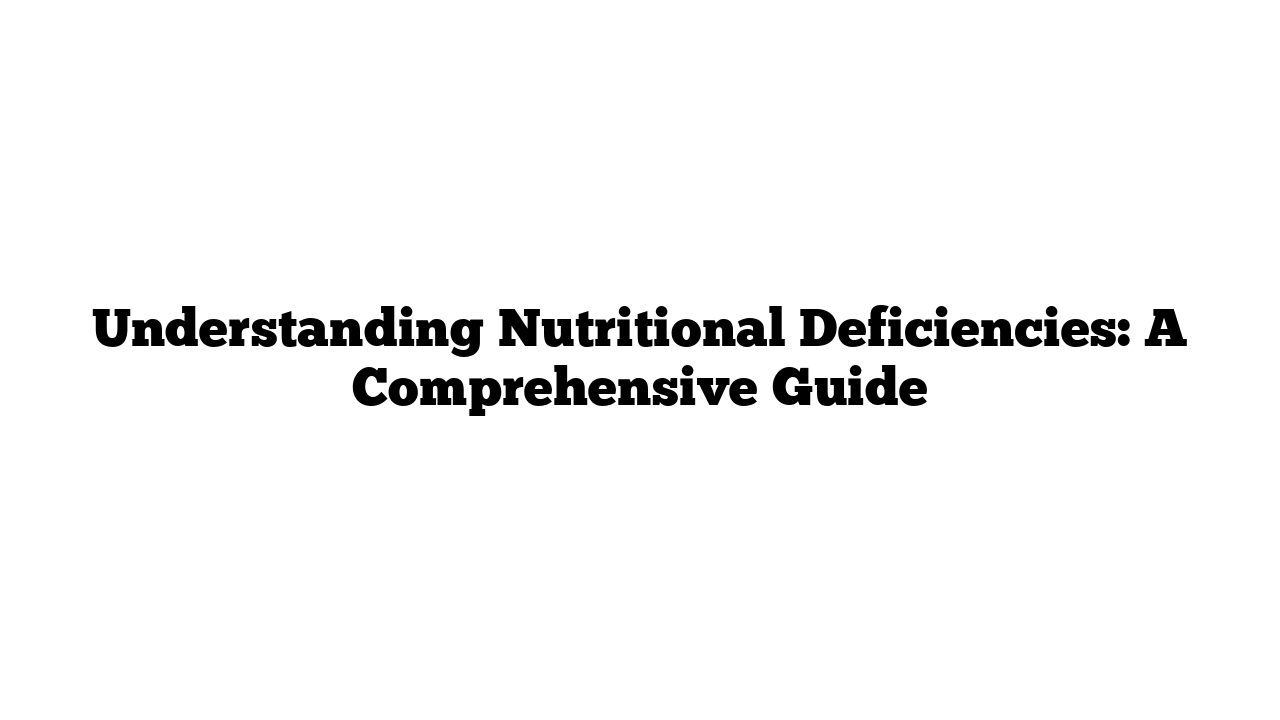Nutritional deficiencies can affect our health in many ways. When our bodies lack essential nutrients, it can lead to various health problems. In this article, we will explore common nutritional deficiencies, their effects, and how to prevent them.
What Are Nutritional Deficiencies?
Nutritional deficiencies occur when the body doesn’t get enough of a specific nutrient. This can happen for various reasons, including poor diet, digestive issues, or specific health conditions.
Why Nutrients Matter
Nutrients are crucial for our overall health. They support various functions in the body, including:
- Energy production
- Immune function
- Bone health
- Mental clarity
When you lack nutrients, your body cannot perform these functions efficiently.
Common Nutritional Deficiencies
1. Vitamin D Deficiency
Vitamin D is vital for bone health. It helps your body absorb calcium. A lack of vitamin D can lead to weak bones, fatigue, and a higher risk of fractures.
Sources of Vitamin D:
- Sunshine (the body produces it when exposed to sunlight)
- Fatty fish
- Fortified dairy products
2. Iron Deficiency
Iron is essential for producing hemoglobin, which carries oxygen in the blood. A deficiency can lead to anemia, resulting in fatigue and weakness.
Sources of Iron:
- Red meat
- Beans
- Leafy greens
3. Calcium Deficiency
Calcium is crucial for strong bones and teeth. Not getting enough can lead to osteoporosis, a condition where bones become brittle.
Sources of Calcium:
4. Vitamin B12 Deficiency
Vitamin B12 is important for nerve function and the production of DNA. A deficiency can lead to neurological issues and anemia.
Sources of Vitamin B12:
- Meat
- Fish
- Fortified cereals
5. Folate Deficiency
Folate is crucial for cell division and the production of DNA. It’s especially important during pregnancy to prevent birth defects.
Sources of Folate:
- Leafy greens
- Legumes
- Fortified grains
How to Prevent Nutritional Deficiencies
Eat a Balanced Diet
Incorporate a variety of foods in your diet. This ensures you get all the necessary nutrients. Focus on:
- Fruits and vegetables
- Whole grains
- Protein sources (meat, fish, beans, nuts)
Consider Supplements
If you struggle to get enough nutrients from your diet, supplements can help. However, consult a healthcare provider before starting any supplements.
Regular Check-ups
Regular check-ups can help identify any deficiencies early on. Blood tests can measure nutrient levels and guide you on necessary changes.
Stay Informed and Healthy
Understanding nutritional deficiencies is crucial for maintaining good health. As the saying goes, “You are what you eat.” By ensuring you consume a balanced diet, you can avoid many health issues linked to deficiencies.
For more information, you can explore these resources:
- Harvard T.H. Chan School of Public Health
- National Institutes of Health (NIH)
- Centers for Disease Control and Prevention (CDC)
By being proactive about your nutrition, you can enjoy a healthier life!
